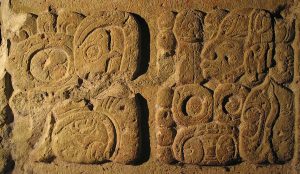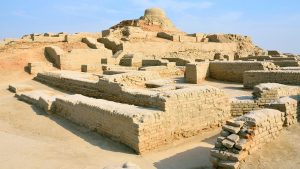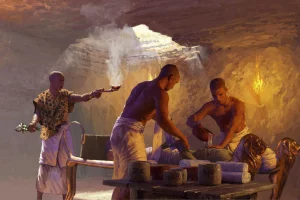Introduction Ancient civilizations have always been a source of wonder and intrigue. From their advanced architectural achievements to their sophisticated knowledge of science and mathematics, these early societies laid the groundwork for the modern world. Many of their discoveries, inventions, and cultural advancements continue to shape our daily lives. Understanding ancient civilizations helps us appreciate
Introduction
Ancient civilizations have always been a source of wonder and intrigue. From their advanced architectural achievements to their sophisticated knowledge of science and mathematics, these early societies laid the groundwork for the modern world. Many of their discoveries, inventions, and cultural advancements continue to shape our daily lives.
Understanding ancient civilizations helps us appreciate human progress and resilience. Whether it’s the mysteries of lost cities, the technological marvels of ancient engineers, or the cultural richness of ancient societies, there is much to learn from our ancestors.
This article explores 10 fascinating Facts About Ancient Civilizations, offering insights into their greatest achievements and hidden secrets.
How Did Ancient Civilizations Influence the Modern World?
Many of the innovations and discoveries from ancient civilizations still influence us today. Their contributions in fields like mathematics, architecture, medicine, and governance have played a crucial role in shaping the way we live.
- The Greeks developed democracy, a system that inspired modern governments.
- The Romans built aqueducts, an early version of today’s water supply system.
- Ancient Egyptians pioneered medical techniques that are still used in modern medicine.
By studying ancient civilizations, we gain insight into the origins of our culture, technology, and social systems.
What Makes an Ancient Civilization Great?
Great civilizations are often defined by their technological advancements, cultural impact, and long-lasting influence. Several key factors contributed to their success:
- Innovative Architecture – The pyramids of Egypt, the Colosseum of Rome, and the Great Wall of China are all testaments to ancient engineering.
- Advanced Writing Systems – The Sumerians, Mayans, and Egyptians developed complex writing systems to record history.
- Sophisticated Social Structures – Societies like Mesopotamia and the Indus Valley had organized governments, trade systems, and legal codes.
Each civilization had unique contributions that helped shape the world we live in today.
10 Fascinating Facts About Ancient Civilizations
1. The Great Pyramids Were Originally Shiny White

Image by: Yandex.com
The Great Pyramid of Giza, one of the Seven Wonders of the Ancient World, originally looked very different from how it appears today. It was covered in smooth, polished white limestone, which reflected the sun’s rays, making the pyramid shine brilliantly.
Over time, weathering and erosion stripped away this outer layer, exposing the rough stones we see today. The pyramid’s design also aligns perfectly with celestial bodies, showcasing the advanced astronomical knowledge of the ancient Egyptians.
2. The Romans Invented a Super-Strong Concrete

Image by: Yandex.com
Ancient Rome’s architectural mastery was largely due to its invention of concrete, which allowed them to build massive and long-lasting structures. Roman concrete, known as opus caementicium, is much more durable than modern concrete.
One of the most astonishing aspects of Roman concrete is that it strengthens over time. Scientists discovered that its mix of volcanic ash and seawater made it resistant to cracks and erosion. This is why structures like the Pantheon and the Colosseum still stand today, while many modern buildings deteriorate within decades.
3. The Mayans Created One of the Most Advanced Writing Systems

Image by: Yandex.com
The Mayan civilization developed one of the most complex and sophisticated writing systems of the ancient world. Their hieroglyphic script contained over 800 symbols, which they used to record historical events, astronomy, and religious beliefs.
Unlike many ancient cultures, the Mayans wrote books on bark paper, known as codices. Unfortunately, during the Spanish conquest, most of these were burned. Only a few, such as the Dresden Codex, have survived, providing insight into their mathematical and astronomical advancements.
4. The Ancient Greeks Built the First Analog Computer

Image by: Yandex.com
The Antikythera Mechanism, discovered in a Greek shipwreck, is often called the world’s first analog computer. This sophisticated device, dating back over 2,000 years, was used to predict astronomical events, lunar cycles, and even eclipses.
Scientists were amazed by its complex gears and precision, showing that the Ancient Greeks had a deep understanding of engineering and astronomy. It was centuries ahead of its time, and even today, researchers are still unlocking its secrets.
5. The Indus Valley Civilization Had an Advanced Drainage System

Image by: Yandex.com
The Indus Valley Civilization (modern-day Pakistan and India) was one of the earliest urban societies, flourishing over 4,500 years ago. They built well-planned cities with a remarkable drainage system, proving their expertise in urban planning.
Unlike many ancient civilizations, homes in the Indus Valley had private bathrooms and drainage systems, directing wastewater into underground pipes. This level of sanitation and hygiene was far ahead of its time and set the foundation for modern plumbing systems.
6. The Egyptians Used Antibiotics Thousands of Years Ago

Image by: Yandex.com
Ancient Egyptians were pioneers in medicine and healing practices. They treated infections using moldy bread, honey, and plant-based remedies, which acted as natural antibiotics.
Modern scientists discovered that some of these ancient treatments contained penicillin-like properties, proving that Egyptians unknowingly used antibiotics long before they were officially discovered in modern medicine.
7. The Chinese Invented Paper Over 2,000 Years Ago

Image by: Yandex.com
Paper was invented in Ancient China around 105 AD by a court official named Cai Lun. Before paper, people wrote on bamboo strips, silk, or animal bones, which were expensive and difficult to use.
The invention of paper revolutionized communication and made it easier to record history, literature, and government records. It later spread to the Islamic world and Europe, becoming one of the most important inventions in human history.
8. The Persian Empire Built the First Postal System

Image by: Yandex.com
The Persian Empire, one of the largest ancient empires, developed an efficient postal system known as the Chapar Khaneh. This system used relay stations with fresh horses, allowing messages to travel quickly across the vast empire.
This early postal system inspired later developments, including the Roman postal service and modern mail systems.
9. The Vikings Had Advanced Navigation Skills

Image by: Yandex.com
Despite lacking modern tools, the Vikings were skilled navigators who explored far beyond their homeland. They used a sunstone crystal, known as a sólarsteinn, to locate the sun’s position even on cloudy days.
Their longships were built for both speed and stability, allowing them to travel as far as North America, long before Columbus.
10. The Aztecs Had Floating Gardens

Image by: Yandex.com
The Aztecs developed an innovative farming method called chinampas, or floating gardens. They built these artificial islands on lakes, allowing them to grow crops in areas with limited farmland.
Chinampas provided a sustainable way to grow food, and modern agriculturalists are now studying this technique to improve urban farming and environmental sustainability.
Final Thoughts
Ancient civilizations were far more advanced than many people realize. Their contributions to science, engineering, medicine, and communication continue to shape the modern world.
Key Takeaways:
- Ancient cultures had innovations far ahead of their time.
- Many of their technological advancements still influence modern society.
- Learning From Ancient Civilizations helps us appreciate human progress.
















